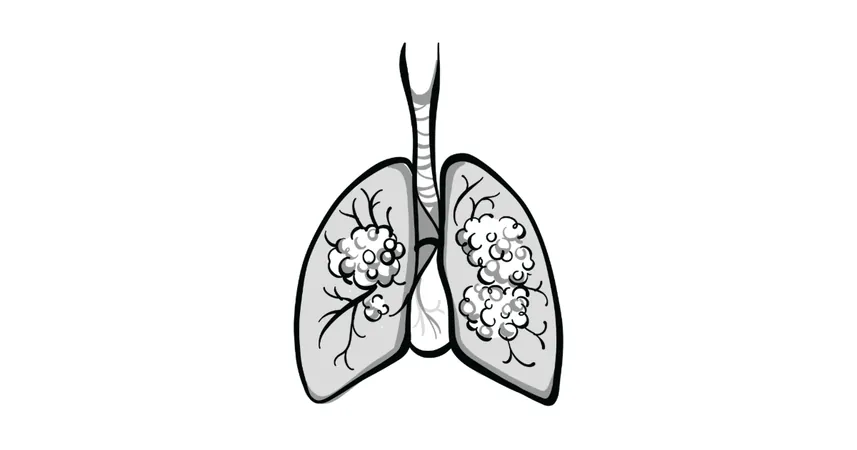
Revolutionizing Lung Cancer Treatment: The Critical Role of Biomarker Testing
2025-08-28
Author: Daniel
Transforming Lung Cancer Diagnosis
The world of lung cancer diagnosis has undergone a significant transformation, with bronchoscopic techniques taking center stage as the go-to method for tissue sampling. In parallel, comprehensive biomarker testing is emerging as a critical component in the pursuit of personalized treatment strategies for non–small cell lung cancer (NSCLC). These two trends underscore the necessity for high-quality tissue samples to ensure effective treatment planning.
The Importance of Biomarker Testing
Dr. Martin F. Dietrich, a prominent medical oncologist, emphasizes that understanding tumor staging and the molecular makeup of lung cancers right from the start is vital. He advocates for comprehensive biomarker testing at nearly every stage of the disease, which is reshaping the traditional methodology—from solely making a historical diagnosis to integrating targeted therapy at the very first evaluation.
Expert Recommendations on Biopsy Techniques
In May 2025, an expert panel comprised of multidisciplinary specialists released guidelines comparing the efficacy of endobronchial ultrasound (EBUS) and CT-guided percutaneous biopsy. Dr. Abhinav Agrawal, one of the panel's lead authors, noted that while EBUS is less invasive, advancements in technology ensure its diagnostic yield is on par with more invasive techniques.
Dr. Dietrich concurs that the panel's findings are pivotal for oncologists, advocating for greater reliance on endobronchial methods to secure sufficient tissue samples for effective analysis.
The Challenges of Inadequate Tissue Samples
The implications of insufficient tissue samples can be dire for lung cancer patients. Recent research reveals a diagnostic yield of 70% to 80% for both navigational bronchoscopy and transthoracic needle biopsy, with newer robotic techniques potentially exceeding 90%.
Dr. Dietrich warns that between 20% and 30% of patients may lack adequate tissue for next-generation sequencing (NGS), highlighting this as a significant obstacle in treatment decision-making.
Streamlining Treatment Through Reflex Testing
Adhering to the National Comprehensive Cancer Network (NCCN) guidelines for NSCLC, which call for extensive genomic testing, can expedite treatment. Dr. Agrawal suggests an innovative workflow where biomarker evaluation discussions occur during tumor board meetings, allowing for immediate requests for NGS if locally advanced disease is suspected.
Dr. Dietrich is a strong advocate for the implementation of automated reflex protocols for NGS, ensuring patients with more advanced forms of cancer receive timely testing.
Liquid Biopsies: A Game Changer
The potential of liquid biopsies to analyze circulating tumor DNA (ctDNA) allows for rapid results while minimizing patient risk. Although the NCCN advises that ctDNA testing cannot replace traditional histologic diagnoses, it holds promise for fast-tracking care for advanced cancer patients.
A Shift Towards Biomarker-Led Treatment Strategies
With targeted therapies becoming increasingly prevalent even in earlier stages of lung cancer, the reliance on molecular characteristics for treatment decisions is reshaping clinical practice. Dr. Dietrich notes that the integration of biomarker analysis into the treatment pathway could allow for tailored therapies across various stages of the disease.
Enhancing Communication for Better Outcomes
Facilitating dialogue between pulmonologists, thoracic surgeons, and oncologists is crucial for appropriate biomarker testing. Early discussions regarding tissue sampling can streamline patient management and improve treatment outcomes.
Next Steps for Lung Cancer Diagnostics
As academic centers refine their multidisciplinary approaches to lung cancer diagnostics, Dr. Dietrich emphasizes the need for seamless communication across specialties. There is a growing demand for better tissue stewardship to ensure comprehensive biomarker testing keeps pace with advances in targeted therapies.
The expert panel urges the investigation of innovative biopsy techniques and enhanced technologies to further improve diagnostic yields and clinical outcomes for lung cancer patients.

 Brasil (PT)
Brasil (PT)
 Canada (EN)
Canada (EN)
 Chile (ES)
Chile (ES)
 Česko (CS)
Česko (CS)
 대한민국 (KO)
대한민국 (KO)
 España (ES)
España (ES)
 France (FR)
France (FR)
 Hong Kong (EN)
Hong Kong (EN)
 Italia (IT)
Italia (IT)
 日本 (JA)
日本 (JA)
 Magyarország (HU)
Magyarország (HU)
 Norge (NO)
Norge (NO)
 Polska (PL)
Polska (PL)
 Schweiz (DE)
Schweiz (DE)
 Singapore (EN)
Singapore (EN)
 Sverige (SV)
Sverige (SV)
 Suomi (FI)
Suomi (FI)
 Türkiye (TR)
Türkiye (TR)
 الإمارات العربية المتحدة (AR)
الإمارات العربية المتحدة (AR)